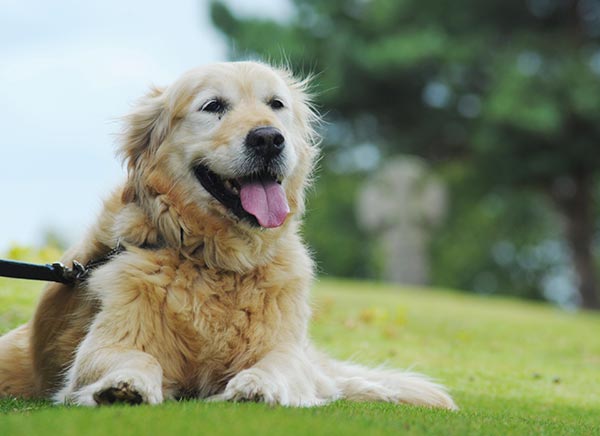Your Senior Dog's Health

Dogs are living longer, healthier lives with proper nutrition and veterinary care.
Many areas of care are important for keeping your older dog comfortable and healthy, and proper nutrition is right at the top of the list. Your senior dog requires top-notch nutrition to stay in good shape. In addition, some older dogs will become fussy about what they eat or will only eat small portions. For this reason, you need to provide foods with quality ingredients that are not only tasty but nutritious. You should also ensure that your senior pet receives the proper amount of exercise and regular checkups from a veterinarian.
Protein
Protein sources must provide all of the necessary amino acids that your dog’s body will use as building blocks to maintain muscle, create enzymes, and provide energy. Meat sources and eggs tend to be the best sources of protein for dogs. Some grain products also provide protein that dogs can utilize.
Water
Water is an essential nutrient for all dogs, and it is especially important for elderly dogs in maintaining healthy kidney function and hydration. Make sure that your dog always has access to fresh, clean water. If you live in a multi-level house, place accessible water bowls on all levels.
Some dogs prefer tepid or slightly warm water instead of cold water as they age. Try different temperatures to see which your dog prefers. It may vary with the season, too (i.e., cooler water during hot weather and slightly warmer water in cold weather).
Fats
Fats help to keep your senior dog’s coat in great shape. Along with regular grooming, omega-6 and omega-3 fatty acids can support healthy skin and coat condition. Fatty acids are often included in your dog’s regular diet.
Vitamins & Minerals
Vitamins and minerals are important nutrients for dogs of all ages. With senior dogs that may not be eating well, they can be even more important. Antioxidants are some of the most important supplements for your elderly dog. They work against free radical damage to his cells, helping to support the immune system and keep dogs in peak condition. Antioxidants include vitamins A, E, and C, which are found in a good multivitamin. Other beneficial nutrients include B vitamins which can boost energy. A multi-vitamin supplement such as Bio Spot Active Care™ Multivitamin Chewable Tablets for Dogs may be of benefit.
Supplements
Many older dogs are less active. Nutritional supplements for older dogs should include glucosamine and chondroitin sulfate.
Always consult your veterinarian before adding any supplements to your dog’s diet. They can help you determine which additions will be most helpful for your dog and ensure that there won’t be any dangerous medication interactions.
Exercise
Along with providing joint supplements, you will need to maintain a routine of moderate daily exercise. Swimming is excellent for older dogs that enjoy the water, but make sure the water is warm for those sore, exercised joints! Plan on some nice walks, and skip the long runs for most senior dogs.
Checkups
If you notice your dog is not eating well or his appetite has dropped off, your veterinarian should see him for an examination. A senior blood panel, along with a urinalysis, can help early detection of any health issues. If caught early, many senior dog health problems can be managed long-term.
Dental care is a critical regimen for older pets. Regular cleanings, along with home dental care such as brushing your pet’s teeth, can help support healthy teeth and gums.
Proper care, including a balanced diet with supplements as needed, can be crucial to keeping a spring in your elderly dog’s step and a wag in his tail!